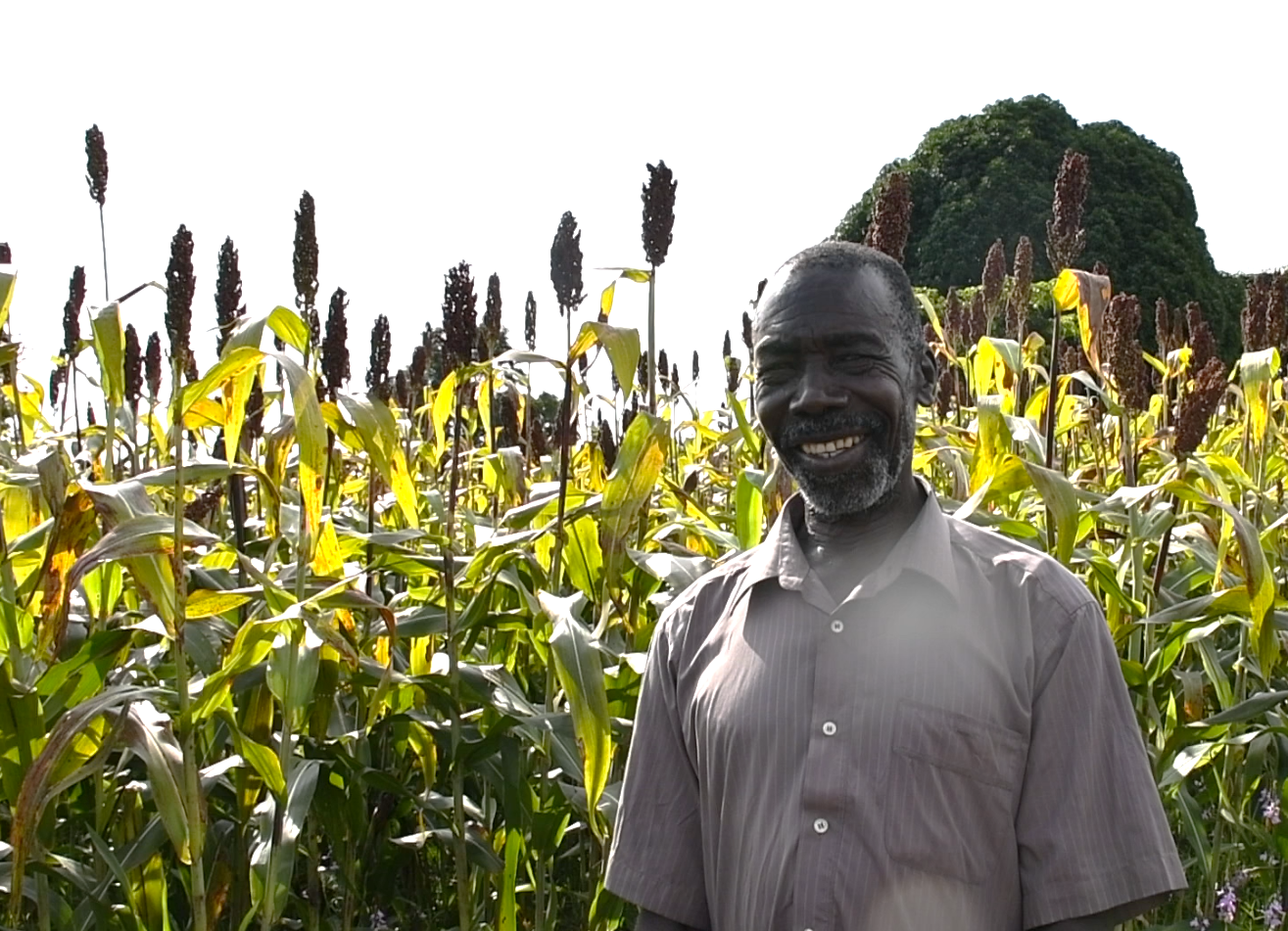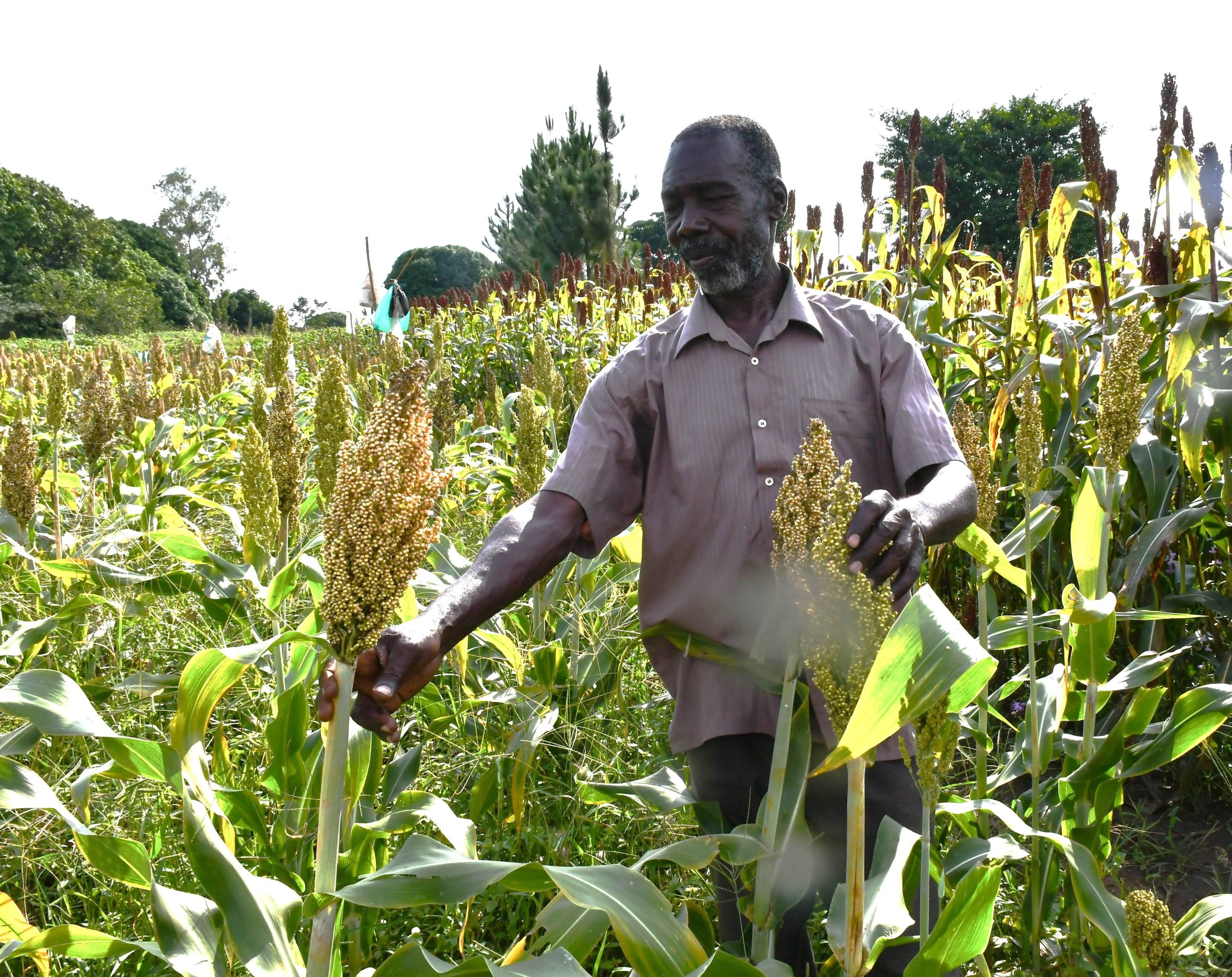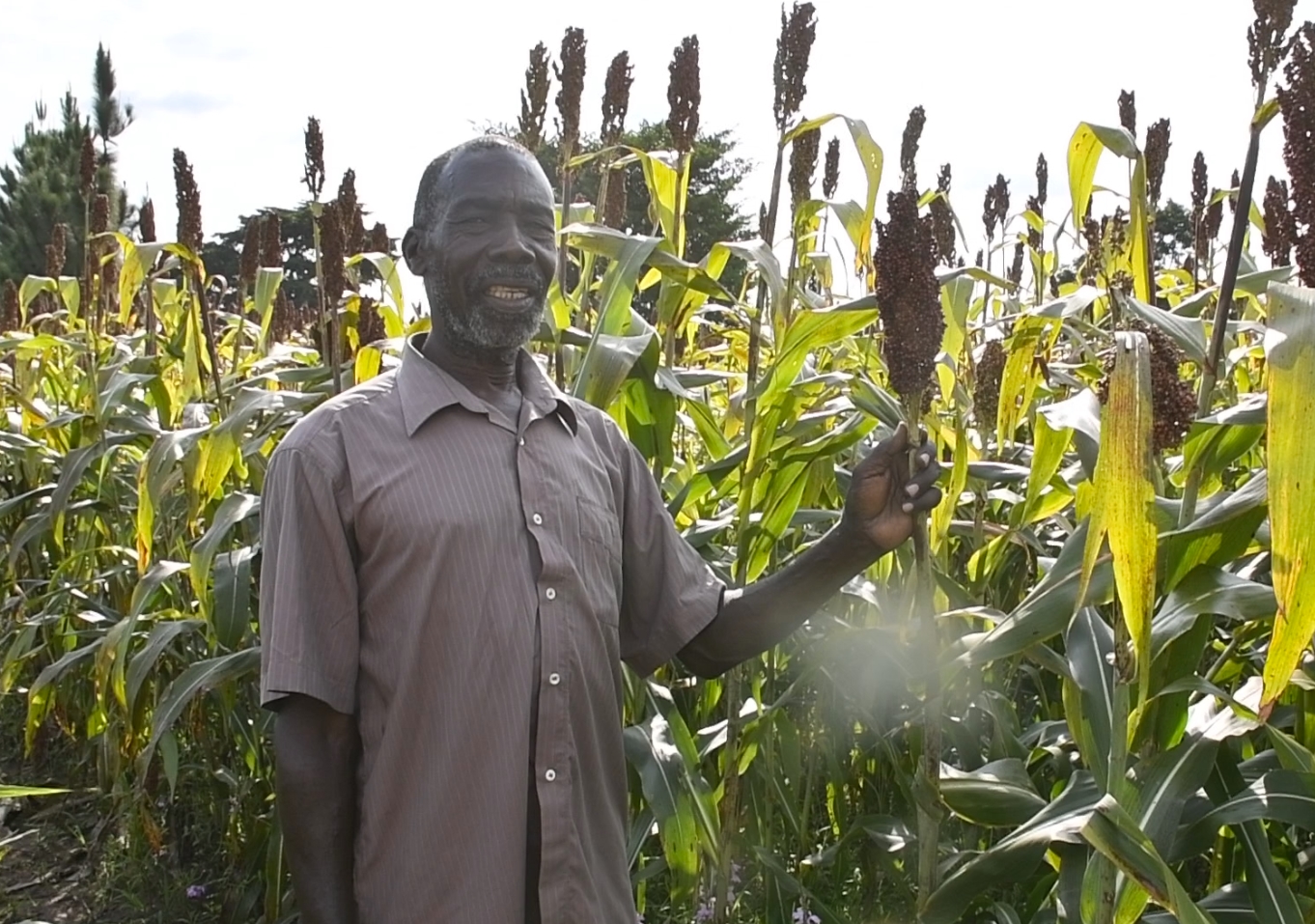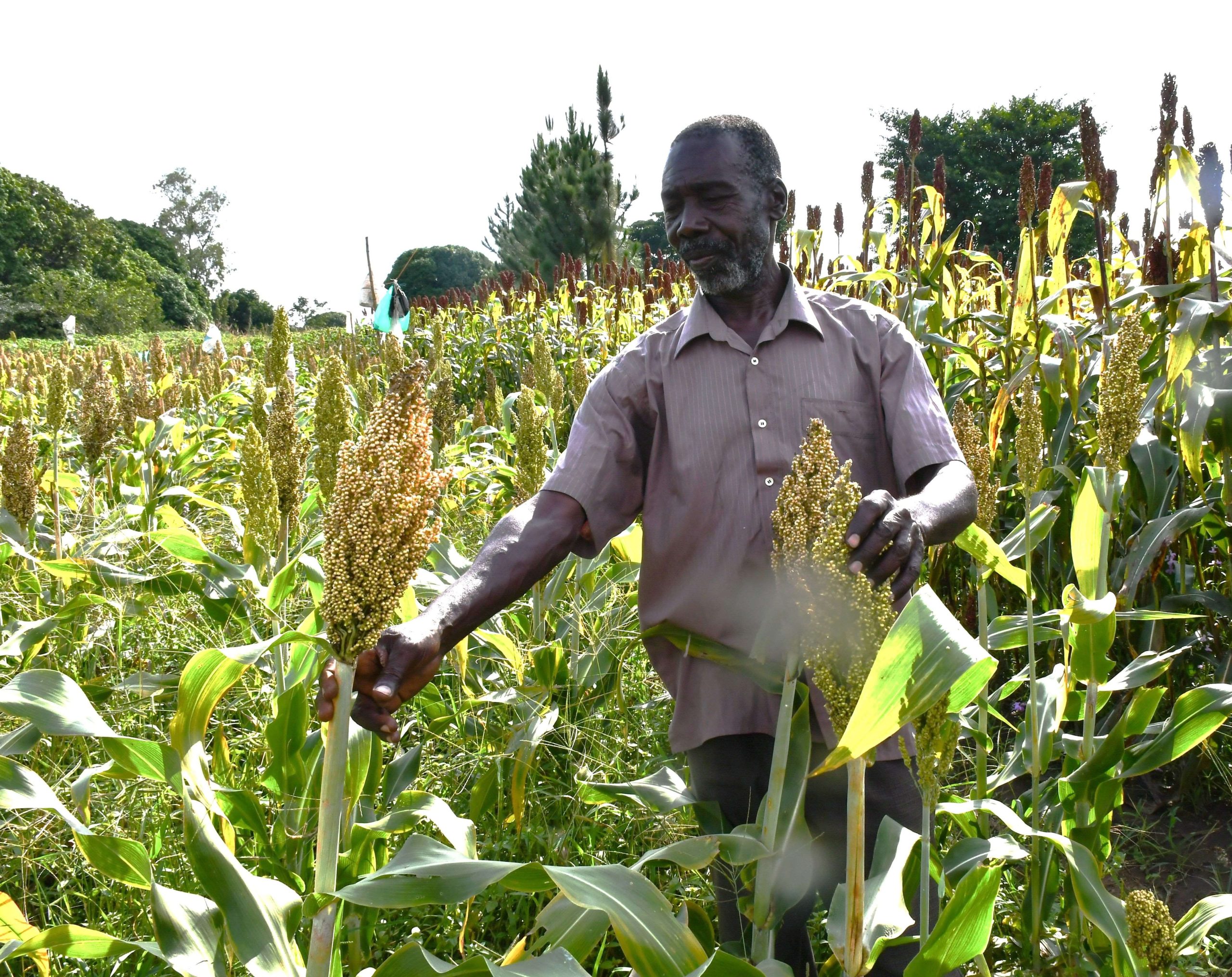In Kasoka village of Bukedea District in Uganda, Nelson Ekurutu, a dedicated farmer, is leading the way in agricultural experimentation. With support from the Accelerated Varietal Improvement and Seed Systems in Africa (AVISA) project—funded by the Bill & Melinda Gates Foundation (BMGF) and implemented in partnership with CIMMYT and the National Semi-Arid Resources Research Institute (NaSARRI)—Nelson has embarked on a journey to test three new groundnut varieties: SERENUT 8, SERENUT 11, and SERENUT 14. The demonstration plots provide him with a platform to test new varieties, helping him and others understand what works best in their locality.
While Nelson is drawn to the SERENUT 11 variety for its attractive leaves, he remains cautious, knowing that the real test will come only after the harvest. “This is my first time planting these varieties,” he says. As curious neighbors pass by and inquire about the varieties, he explains, ‘We are testing new varieties, and we’ll know more about their performance and yields after the harvest.”
The AVISA project, which aims to improve the productivity of dryland crops such as groundnut, finger millet, and sorghum, plays a crucial role in Nelson’s work. With funding and technical support from CIMMYT and NaSARRI, farmers like Nelson are given the opportunity to test improved, drought-tolerant, and disease-resistant varieties. These varieties are designed to increase yields and help farmers become more resilient to climate change while enhancing production systems.

Nelson’s demonstration plots, using seed supplied by NaSARRI, are part of this initiative. CIMMYT has been instrumental in ensuring that these varieties are adapted to the local environment, while also working with NaSARRI to build farmers’ capacity through hands-on training and technical assistance.
In addition to groundnut, Nelson is also experimenting with finger millet and sorghum. He values the red finger millet variety SEREMI 2 for its quick maturity and larger heads. “I planted the finger millet on April 10th, and by July this year (2024), it was ready for harvest,” he says proudly. In addition to finger millet, he is also testing several sorghum varieties—NAROSORG 2, which is red, and SESO 1, which is white. Although he likes them all, Nelson has a clear preference: “I prefer the red sorghum because birds don’t eat it as much. When mixed with cassava, it makes a good atapa.” Atapa is a staple food in Uganda made by mixing cassava and sorghum flour and cooking it with water until it forms a firm, dough-like consistency. It is typically served as a side dish with stews, vegetables, or meat. Similar dishes are known by different names across the region—Ugali in Kenya, Sadza in Zimbabwe, and Pap in South Africa— underlining its importance in African cuisine.

Nelson notes that although the white sorghum produces larger heads, it attracts more birds, requiring him to cover the heads to prevent damage. These trials represent Nelson’s first experience with these varieties, and he acknowledges the learning process involved. “The seed was sourced from NaSARRI specifically for these demonstration plots,” he explains. He believes that by seeing the results first-hand, other local farmers will be able to make informed decisions about adopting the new varieties for improved seed production.
Nelson’s demonstration plots serve as valuable learning sites for the wider farming community. By bridging the gap between research and farmers’ needs, the AVISA project ensures that scientific innovations reach those who need them most. Reflecting on his journey, Nelson describes the testing of these new varieties as a continuous learning experience. “I’ve been growing sorghum for a long time, and when people see how I grow it, they often ask about the variety and where they can get seeds,” he says. After his harvest, Nelson plans to share the seeds with nearby farmers while keeping some for his own future planting.
Although he hasn’t been involved in large-scale seed distribution before, Nelson sees potential for future collaboration. “ There’s a group of sunflower and groundnut farmers who have organized themselves into a SACCO to access funding,” he says, referring to the Parish Development Model (PDM) initiative. This model could offer Nelson the opportunity to expand seed distribution and help more farmers access improved varieties.
Committed to helping local farmers adopt best practices, Nelson is eager to share his knowledge. “When people see how I grow the crops, they often ask for advice or seeds,” he says. He believes that organizing field days to showcase the new varieties would be an excellent way to engage more farmers and demonstrate the value of improved seeds.

One of the challenges Nelson frequently encounters is farmer’s poor planting practices. “Some farmers broadcast the seeds instead of planting them properly in rows,” he notes, stressing the importance of correct planting techniques. Despite this, he continues to share seeds and farming knowledge to help his fellow farmers to improve their yields.
Another key issue Nelson highlights is seed recycling, a crucial aspect of sustainable farming. “When you recycle seeds too much, they get tired,” he explains. For improved varieties, Nelson recommends recycling seeds no more than three times to maintain the health of the crop. “I recycle mine only twice. The local seeds can be recycled up to 20 times, but improved varieties don’t perform as well after a few cycles.”
Climate change is one of the biggest challenges for Nelson’s farming practices, but he remains hopeful. He believes that installing an irrigation system would help mitigate the effects of erratic rainfall and improve his yields. His willingness to try new techniques and experiment with new varieties shows his determination to find solutions in the face of adversity.
Nelson is optimistic that his trials with ground nut, sorghum, and millet will encourage other farmers to adopt improved varieties, increase seed production and lead to greater productivity in his village and beyond. Through programs like the AVISA project—supported by CIMMYT and NaSARRI—farmers like Nelson are gaining access to better seeds, growing more resilient crops, and improving food security in their communities.

 Innovations
Innovations 